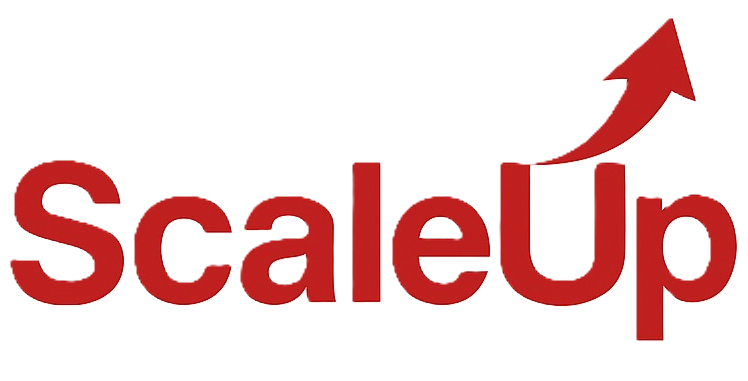How Data Analytics is Transforming the Healthcare Industry
Introduction
In today’s digital age, healthcare isn’t just about doctors, nurses, and hospitals—it’s also about data. From predicting disease outbreaks to personalizing treatment plans, data analytics is quietly transforming healthcare. As healthcare costs rise and the demand for better patient care increases, making data-driven decisions has become crucial. Healthcare providers, insurance companies, and even fitness apps are all using data analytics to save lives, reduce errors, and boost efficiency. It’s giving healthcare professionals powerful tools to spot patterns, predict issues, and make faster, smarter decisions for better care.
Predictive Analytics in Patient Care
Using Data to Save Lives Before Symptoms Appear
Hospitals are now using predictive models to identify high-risk patients before they even show critical symptoms. By analyzing past health records, wearable device data, and lifestyle factors, data analytics helps medical teams step in early to prevent serious problems.
Case Study: Mount Sinai Health System
Mount Sinai in New York has a system that flags patients who are at risk of developing heart failure—sometimes weeks before any symptoms show up. This gives doctors the chance to take preventive action, reducing hospital visits.
How It Works:
- Historical patient data is analyzed to spot risk factors.
- Machine learning models detect early warning signs.
- Real-time data from wearable devices is fed into the system.
Result:
Fewer emergencies, better treatment plans, and lower costs.
Improving Diagnosis Accuracy with Data Analytics
Helping Doctors Make Better Decisions
Misdiagnoses are a big concern in healthcare, but data analytics helps reduce these mistakes. By providing evidence-based insights from thousands of similar cases, doctors can make more accurate decisions.
Example: IBM Watson Health
IBM Watson scans millions of medical journals and patient records to suggest diagnoses and treatments. Doctors use Watson as a second opinion, especially for complex conditions like cancer.
How It Works:
- Natural Language Processing (NLP) reads through medical texts.
- Pattern recognition is used on lab results and medical images.
- Recommendation algorithms help suggest treatments.
Impact:
Faster, more accurate diagnoses and better patient outcomes.
Enhancing Hospital Operations with Data
Streamlining Hospital Efficiency
Hospitals are complicated places with a lot happening all at once. Data analytics helps improve everything from wait times in the ER to managing inventory and staff schedules.
Case Study: Cleveland Clinic’s Data-Driven Operations
By analyzing patient flow, Cleveland Clinic reduced emergency room wait times and improved staffing, which led to better care and lower costs.
How It Works:
- Time series analysis predicts when patient volumes will peak.
- Supply chain analytics makes sure medicines and equipment are stocked properly.
- Operational dashboards give real-time updates on patient bed usage and admissions.
Benefits:
- Smoother workflows
- Less burnout for staff
- Happier patients
Personalized Medicine Through Data
Tailoring Treatments to the Individual
Not everyone responds to the same treatments the same way. Data analytics helps doctors personalized medicine based on a patient’s genetic information, lifestyle, and environmental factors.
Example: 23andMe & Personalized Drug Responses
Services like 23andMe offer genetic insights that help doctors understand how a patient might react to specific medications, reducing the trial-and-error approach to treatment.
How It Works:
- Genomic data analysis looks at a patient’s DNA.
- Cluster analysis groups patients based on similar traits.
- AI models suggest the best treatment options for each patient.
Outcome:
Higher treatment success rates and fewer side effects.
Fighting Fraud and Waste in Healthcare
Protecting Patients and Insurance Systems
Healthcare fraud is a huge problem, but analytics tools are helping to spot fake prescriptions, unusual billing patterns, and duplicate claims in real-time.
Example: Medicare’s Fraud Prevention System
The U.S. Medicare system uses data analytics to flag suspicious claims, saving billions of dollars and preventing fraudulent payments.
How It Works:
- Anomaly detection algorithms identify unusual claims.
- Real-time monitoring keeps an eye on claims as they come in.
- Text mining analyzes insurance claims for inconsistencies.
Impact:
Lower insurance premiums, more trust in the system, and more resources for real patients.
The Rise of Data Analysts in Healthcare
As healthcare becomes more data-driven, there’s a growing need for data analysts and scientists to join healthcare teams. These professionals help doctors and administrators make smarter decisions using data—not just gut feelings.
In-Demand Skills:
- SQL for managing patient data
- Python/R for building models
- Data visualization with tools like Power BI and Tableau
- Understanding healthcare compliance (like HIPAA)
For students, this means a growing career opportunity at the intersection of tech and healthcare—where your skills can make a real difference in people’s lives.
The Future of Healthcare Analytics
Data analytics in healthcare is still in its early stages, but it’s moving fast. In the future, we can expect:
- Real-time AI diagnoses through mobile apps
- Global health trend monitoring using big data
- Better tools for predicting and preventing pandemics
As healthcare becomes more digital, the ability to analyze and act on data will be key to improving both public health and individual care.
Conclusion
Data analytics is revolutionizing healthcare—making it smarter, faster, and more personalized. From predicting heart disease to streamlining hospital operations, data is saving time, money, and lives.
For those interested in data careers, the healthcare industry offers not just job opportunities but the chance to truly make a difference. Whether you’re building models, analyzing patient trends, or visualizing data for doctors, your work could help save lives.







